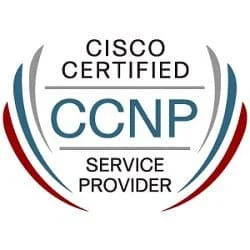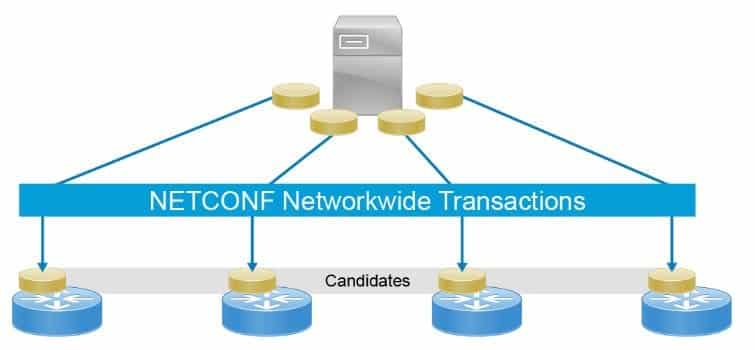CCNP Service Provider SPAUI – Implementing Automation for Cisco Service Provider Solutions

The SPAUI Implementing Automation for Cisco Service Provider Solutions course is part of the Cisco CCNP Service Provider and DevNet Professional track. This course focuses on implementing and supporting automation solutions in a Service Provider network infrastructure. Principles, protocols, tools, and network programmability mechanisms will be used. The goal is to efficiently administer numerous devices, replacing traditional Command Line Interface (CLI) management with powerful automation systems such as YANG, RESTCONF, NETCONF, gRPC, gNMI, and others. The course contributes to the preparation of the Cisco CCNP Service Provider Certification exam (Exam 300-535) .
Course Objectives
Below is a summary of the main objectives of the SPAUI Implementing Automation for Cisco Service Provider Solutions Course :
- Implementation and support of automation solutions in Service Provider network infrastructures.
- Using network programmability principles and protocols.
- Efficient management of numerous devices through automation systems.
- Replacing traditional CLI management with advanced tools.
- Introduction to tools and concepts such as YANG, RESTCONF and NETCONF.
- Developing skills in scripting and automation with Python for service provider environments.
- Mastering the integration of automation tools with Cisco’s network management solutions.
- Understanding best practices for implementing and troubleshooting automated network solutions.
Course Certification
This course helps you prepare to take the:
Exam 300-535 SPAUTO Automating and Programming Cisco Service Provider Solutions;
Course Outline
- Implementing Network Device Programmability with NETCONF and RESTCONF
- NETCONF Protocol for Programmability
- Explore NETCONF Protocol in Cisco Devices
- RESTCONF Protocol for Programmability
- Configure Cisco IOS XE Devices with RESTCONF
- Implementing Model-Driven Programmability with YANG
- YANG Data Models
- YANG Tools
- YANG Development Kit
- Explore Cisco and OpenConfig YANG Data Models with YANG Tools
- Use ncclient and Python to Configure Cisco Devices
- Use YDK to Configure Cisco Devices
- Use XPath Notation in YANG Data Models
- Implementing Model-Driven Telemetry
- Implementing Model-Driven Telemetry with gRPC
- Configure Model-Driven Telemetry with gRPC
- Implementing Model-Driven Telemetry with gNMI
- Configure Model-Driven Telemetry with gNMI
- Automating Service Provider Network Traffic with Cisco XTC
- Cisco XTC Fundamentals
- Configure Cisco XTC
- Configure Path Disjointness with Cisco XTC
- Automating Networks with Tools That Utilize SSH
- Implement Device Configurations with Python Netmiko Library
- Use Python Netmiko Library to Configure Cisco Devices
- Implement Device Configurations with Ansible Playbooks
- Use Ansible to Configure Cisco Devices
- Orchestrating Network Services with Cisco NSO
- Cisco NSO Fundamentals
- Cisco NSO Device Manager Operations
- Use Cisco NSO Device Manager
- Cisco NSO Services
- Create a Loopback Service Template
- Implement Device Configurations with Python
- Use Cisco NSO REST API with Postman
- Automating Virtualized Resources with Cisco Elastic Services Controller
- Cisco ESC Overview
- Cisco ESC Architecture
- Automating the WAN with Cisco WAE
- Describe the Cisco WAE Components
- Explore and Use Cisco WAE Features
Laboratory Activities
- Explore NETCONF Protocol in Cisco Devices
- Configure Cisco IOS XE Devices with RESTCONF
- Explore Cisco and OpenConfig YANG Data Models with YANG Tools
- Use ncclient and Python to Configure Cisco Devices
- Use YANG Development Kit (YDK) to Configure Cisco Devices
- Configure Model-Driven Telemetry with gRPC
- Configure Model-Driven Telemetry with gNMI
- Configure Path Disjointness with Cisco XTC
- Use Python Netmiko Library to Configure Cisco Devices
- Use Ansible to Configure Cisco Devices
- Use Cisco NSO Device Manager
- Create a Loopback Service Template
- Use Cisco NSO REST API with Postman
- Explore and Use Cisco WAE Features
Course Mode
Instructor-Led Remote Live Classroom Training;
Trainers
Trainers are Cisco Official Instructors and certified in other IT technologies, with years of hands-on experience in the industry and in Training.
Lab Topology
For all types of delivery, the Trainee can access real Cisco equipment and systems in our laboratories or directly at the Cisco data centers remotely 24 hours a day. Each participant has access to implement the various configurations thus having a practical and immediate feedback of the theoretical concepts.
Here are some Cisco Labs network topologies available:

Course Details
Course Prerequisites
Participation in the Cisco CCNA Course and the Python Programming Course is recommended .
Course Duration
Intensive duration 3 days
Course Frequency
Course Duration: 3 days (9.00 to 17.00) - Ask for other types of attendance.
Course Date
- Cisco SPAUI Course (Intensive Formula) – On request – 9:00 – 17:00
Steps to Enroll
Registration takes place by asking to be contacted from the following link, or by contacting the office at the international number +355 45 301 313 or by sending a request to the email info@hadartraining.com


